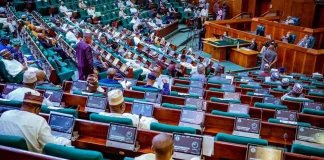The celebration is now ended, but the echoes are all around whirling like the harmattan whirlwind throwing dust… those were lines from Gabriel Okara’s poem- The End. Like the poem, the recession is now ended, at least so the National Bureau of Statistics (NBS) say. And like the poem, the scars from the recession are still all around us. They might not be whirling like the harmattan whirlwind, but they are here still staring us in the face. The good news is that Nigeria is out of the recession, and there are lessons learnt.
You will recall that the Nigerian economy officially went into recession at the second quarter of 2016, after the country recorded negative real GDP growth rate for two consecutive quarters. The recession as many economists have pointed out was occasioned by several factors including the fall in the global prices of crude, the exchange rate discrepancies, militancy in the Niger Delta, high inflation rate, high unemployment rate etc.
However in another swift breathe, the experts had started foreseeing the end of the recession which they projected to be at the end of the second quarter of 2017. Amazingly, the second quarter of 2017 ended and the recession comes to an end. Though some economists still think that we should wait until we have two consecutive quarters with positive real GDP growth rate, current economic indices do show that inflation rate is falling, the economy is being diversified from just crude and the ease of doing business in Nigeria has improved.
A typical recession is usually charaterised by low lending rates, to allow for people to borrow. However, in Nigeria, the reverse was the case. Nigerians were not borrowing and the interest rates were not low! So in the Nigerian recession, despite the low saving deposit interest rates, fall in the marginal propensity to consume (MPC), and high unemployment rate, Nigerians were saving. This brings us to the first lesson from the recession;
The Paradox of Thrift
This paradox states that in a recession people are nervous so they tend to save more. In Nigeria, even with the low interest rates on saving and high inflation rates, reports have it that Nigerians were saving more now than they did two to three years ago. According to the 2017 first quarter report by the Central Bank of Nigeria, the commercial banks savings account deposits rose by 0.8% from the second quarter of 2016.
While we might have imbibed a saving culture, perhaps more out of necessity than habit. It is important that we ensure that the money we have saved either from reduced spending, from saving for the raining day or from hedging against loss, are not just sitting in our bank accounts idle. This brings us to the second lesson from the recession;
Make your Money Work for You:
One thing the recession brought to the fore was the time value of money. The recession showed that the value of money was very transient. With dwindling exchange rates, high inflation rates, and several uncertainties during the recession, it became obvious that businesses and especially households could not continue keeping their money ‘idle’ in the banks. There were more conversations on how and where to put money while the recession lasted. The government sold bonds, treasury bills, and other forms of auctions in the money market at fantastic rates. While government was using that to mope up liquidity and check inflation, the businesses and households were making their saved money work for them.
So the government was creating wealth through the money market, there were several other privately driven investment ideas. Some were genuine schemes, while others were Ponzi schemes that left their investors devastated. This brings us to the third lesson from the recession;
Curbing our Appetite:
A recession is a time for all forms of adjustments; from structural, to financial to material adjustments. While it was important that people increased the money they had put in place for some financial security, it is also important that every investment opportunity is well researched, properly thought through and seen to be realistic, viable and sustainable. In the bid to make quick wealth, with an insatiable quest for more, many Nigerians fell victim to a lot of Ponzi schemes and lost so much of their scarce resources. These schemes promised unrealistic returns with no concrete evidence of investment, and the investors lost big time!
The money lost could have been properly channeled. It may not have yielded immediate boom, but it would have brought steady growth in the incomes of the households. This will incidentally grow the banks’ deposits, providing funds for the businesses to borrow for expansion and ultimately growing the economy positively.
This brings us to the fourth lesson from the recession;
The need to research and seek alternatives
Seeking Alternatives:
During a recession the norm is to seek alternatives, not necessarily inferior quality but definitely less expensive. This could be similar product /services, complementary or even replacement.
This recession had households and businesses cutting down on their expenses such as first class traveling, luxury lifestyle maintenance, overseas trainings, importation of raw materials etc. Nigerians and businesses were beginning to seek out less expensive alternatives, with care of not compromising on quality. This also brought about the rise of MSMEs as they were providing the needed alternatives at competitive prices.
A typical example is the elimination of roaming cost during a recession. Travelers usually roam their phones so that they can keep in touch with their family and office while they are away. Roaming charges as it were in a recession will be considered very expensive, but with a little bit of research, you find alternative means of keeping in touch without roaming. One of such is the Instavoice app, it allows mobile phone users to manage their missed calls, voicemails and voice SMS when they are unavailable, too busy, in flight mode or when their phones are switched off. So instead of roaming their local numbers, they can track all call attempts to their local number while abroad, retrieve all voicemails and voice SMS from the Instavoice app and respond, while using the international number which is also linked to the app. So with the Instavoice app, frequent travelers can link their local and international numbers to a single app and manage their calls, voicemails and voice SMS.
The recession may have ended, the lessons learnt are numerous but we can only take in a few per time. So like the legendary Gabriel Okara’s poem…we learn to sing to half familiar half strange songs, learn to dance to half familiar half strange rhythm…
















